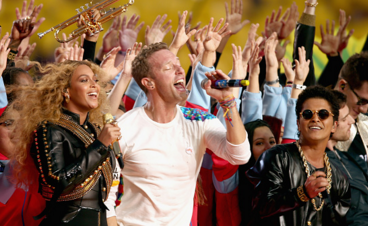I am strictly supportive of most aspects of Western society: accessible health care, voting privileges, religious and ethnic diversity and the everlasting reign of Beyoncé as our nation’s leader. I am a die-hard fan, proud to be and have nothing but good to say about the entertainer. That is why it more than saddens me to realize she very recently played into another aspect of Western society I am entirely unsympathetic to: cultural appropriation.
Less than a week ago, Coldplay and Beyoncé released the music video for their new single, “Hymn for the Weekend.” The video took place in India during the Holi, or Color Festival. Coldplay’s lead singer, Chris Martin, danced around the slums of India with young children, took some time to ride a rickshaw and then proceeded to head to a dilapidated movie theatre that looked like a recovered chicken coop (because it’s India, duh). The feature was a bit of a disappointment. Queen B was dressed in traditional South Asian garb (granted, with more cleavage than any actual Indian or Pakistani girl would ever be allowed to wear according to cultural norms), adorned with jewels, a headpiece and traditional mehndi, or henna, staining her hands.
This latest piece of entertainment is only one small example in the sea of music and film portrayals of third world countries that exploit the sacred and meaningful culture of a slew of individuals. By buying into the diversion, we accept and approve that these famous people can walk into a country, be seemingly welcomed by the individuals as kings and queens, and then leave the place with no economic or social improvement of the slums they were just dancing in. Additionally, the parallel between the luxury portrayed by Beyoncé and the subsequent reality in which she performs is an incredibly offensive dichotomy for any South Asian individual.
Being half-Pakistani, I know my sensitivities are heightened when I see videos like this. However, an entire subgroup of our society, and then some share these sensitivities. Cultural appropriation is basically defined as a dominant group exploiting the culture of a marginalized group by adopting certain glamorous parts of their culture and shunning the less popular or appealing aspects. Additionally, this “borrowing” of cultural aspects is often done with no attempt to understand the history or background of a certain nationality.
I want to make it clear that I don’t take such a strict stance on appropriation that I believe no one should ever adopt anyone else’s cultural practices. My own mother was born and raised in Tipperary, Ireland and has red hair and an accent — but she still dresses in Pakistani clothes and can cook South Asian food better than anyone I know. In my opinion, her assimilation to another culture is not appropriating. A caucasian girl wearing a Bindi for fashion purposes and not understanding its significance in Hinduism is appropriating. Getting mehndi or henna done at a local farmer’s market without realizing why South Asian women have been using it for centuries is appropriating. The issue, in my mind, is not with the use of these practices — it is the use without considering why they exist in the first place.
Cultural sharing can be a beautiful thing if done right. The entertainment industry would do better to use media in an effort to teach the world about a certain place, instead of playing into the same cliché depiction of different cultures that is all the West knows, and will ever know unless we change it.


